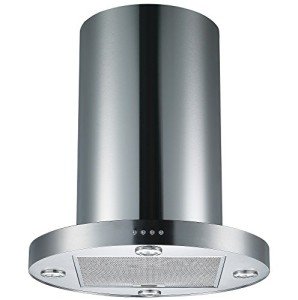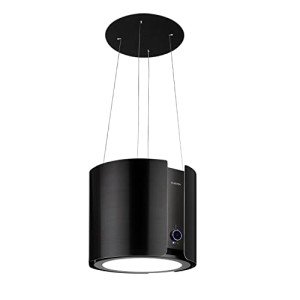A Guide To Island Extractor From Beginning To End
페이지 정보

본문
Kitchen Island Extractor Hood: A Comprehensive Guide
The kitchen is frequently considered the heart of the home, working as a gathering place for friends and family. With the rise of open-concept home, the kitchen has evolved, therefore has the need for efficient ventilation services. One such option that has actually gotten traction in contemporary kitchens is the kitchen range cooker island extractor hood. In this short article, we will check out the benefits, features, and factors to consider of kitchen island extractor hoods, offering readers with an in-depth understanding of this necessary kitchen device.
What is a Kitchen Island Extractor Hood?
A kitchen island extractor fan kitchen extractor hood is a kind of ventilation system specifically developed for kitchen islands. Unlike standard wall-mounted hoods that sit against the wall, island hoods are normally suspended from the ceiling above the kitchen island, permitting efficient air extraction while preserving an open and aesthetic appeal.
Secret Components of Kitchen Island Extractor Hoods
- Motor: The heart of the extractor hood, tasked with pulling air through the system.
- Filters: Typically made from metal or charcoal, these capture grease, smoke, and odors from the air.
- Fan Speed Settings: Multiple speed settings allow users to change the extraction power based on cooking activity.
- Lighting: Many modern models include integrated lighting for improved visibility while cooking.
- Ducting: Ducted hoods vent air outside, while ductless designs recirculate cleaned up air back into the kitchen.
Benefits of Kitchen Island Extractor Hoods
Choosing a kitchen island extractor hood; www.80tt1.com, brings a myriad of advantages that contribute to a cleaner and more satisfying cooking environment. Below are some key advantages:
- Effective Air Quality Control: Island hoods effectively get rid of smoke, steam, and odors, hence enhancing general air quality.
- Visual Appeal: They act as a design centerpiece, boosting the kitchen's visual appeal.
- Flexibility: Available in different styles, sizes, and products, island hoods can easily fit any kitchen design.
- Easy Access: Positioned above the cooking area, they offer accessibility during meal preparations.
- Noise Levels: Many modern models operate silently, enabling discussion without disruption.
Kinds Of Kitchen Island Extractor Hoods
Comprehending the various kinds of kitchen island extractor hoods can help house owners make a notified decision. Here are the most typical types:
- Ducted Extractor Hoods: These hoods vent air directly outside, offering the very best air quality outcomes.
- Ductless Extractor Hoods: Utilizing charcoal filters, these hoods recirculate air back into the kitchen, making them perfect for spaces without existing ductwork.
- Convertible Extractor Hoods: These versatile options can be transformed from ducted to ductless based on the homeowner's needs.
Contrast Table: Ducted vs. Ductless Extractor Hoods
| Feature | Ducted Extractor Hood | Ductless Extractor Hood |
|---|---|---|
| Air Quality | Exceptional | Moderate |
| Installation | Requires ductwork | Easier, no ductwork required |
| Maintenance | Lower (less regular filter modifications) | Higher (frequent filter changes) |
| Cost | Typically more costly | Normally cheaper |
Considerations Before Choosing a Kitchen Island Extractor Hood
When selecting the best kitchen island extractor hood, numerous aspects must be taken into consideration:
- Size: Ensure the hood is properly sized for the island cooking location, typically a hood should be at least as broad as the cooktop.
- Height: Position the hood 30-36 inches above the cooktop for optimal efficiency and security.
- CFM Rating: Choose a hood with a CFM (cubic feet per minute) rating that matches your cooking design. A greater CFM is more suitable for heavy cooking jobs.
- Design and kitchen island extractor hood style: Consider the kitchen's overall aesthetic; pick a hood that matches devices and cabinets.
- Noise Level: Look for designs with quieter operation, especially if the kitchen is an open living space.
Installation of Kitchen Island Extractor Hoods
Installing a kitchen island extractor hood can be a complex process. Here are the key actions normally involved:
- Plan Out Ducting: If ducted, carefully prepare the route for the ductwork from the hood to the outside.
- Protect a Mounting Structure: Ensure a robust and secure mounting structure exists to support the weight of the hood.
- Electrical Connection: For powered hoods, make sure correct electrical connections are set up by a qualified electrician.
- Mount the Hood: Carefully set up the extractor hood according to the manufacturer's guidelines.
- Test Functionality: Once installed, check the fan and lighting features to validate everything is working correctly.
Frequently Asked Questions About Kitchen Island Extractor Hoods
What is the ideal height to set up a kitchen island extractor hood?
The optimum height to install a kitchen island cookers extractor hood for island hood is generally in between 30 and 36 inches above the cooktop, permitting reliable air capture while making sure safety.
How often should I clean or change the filters?
Metal filters ought to be cleaned up every 1-2 months, while charcoal filters require replacement every 6-12 months, depending upon usage.
Is it required to have ductwork for a kitchen island extractor hood?
While ducted hoods are generally more efficient, ductless hoods can be an ideal option for kitchens without existing ductwork.

Can kitchen island extractor hoods be utilized for high-heat cooking?
Yes, however choosing a hood with a sufficient CFM score is crucial for dealing with the increased smoke and steam related to high-heat cooking.
What design styles are available for kitchen island extractor hoods?
Kitchen island extractor hoods can be found in numerous designs consisting of modern-day, traditional, farmhouse, and commercial designs to fit any kitchen design.
A kitchen island extractor hood is not just a practical device; it also acts as a declaration piece in modern-day cooking areas. From improving air quality to boosting the general aesthetic, purchasing the ideal extractor hood can considerably raise the cooking experience. Property owners should consider the size, type, and specific features of the hood to decide that lines up with their cooking practices and kitchen design. With an educated approach, a kitchen island extractor hood can end up being a vital element of any culinary space, providing both functionality and beauty.

- 이전글A Journey Back In Time A Trip Back In Time: What People Talked About Replacement Windows Birmingham 20 Years Ago 25.05.20
- 다음글You Will Meet The Steve Jobs Of The Railroad Settlement Non Hodgkins Lymphoma Industry 25.05.20
댓글목록
등록된 댓글이 없습니다.



